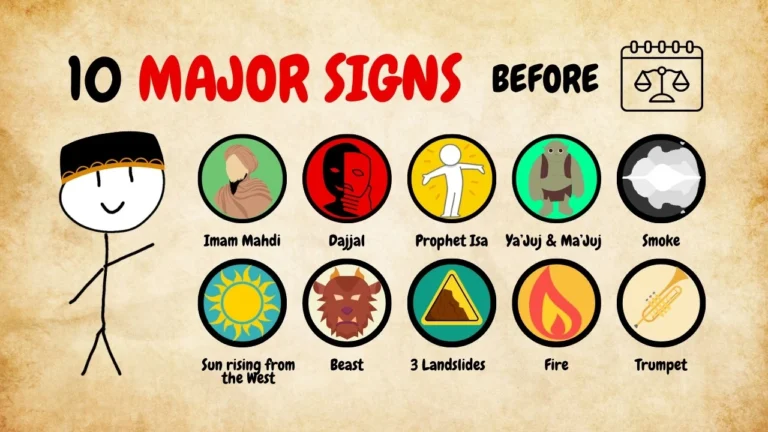Who Were the 4 Rightly Guided Caliphs? (RA)

Have you ever wondered how Islam continued after the passing of Prophet Muhammad (peace be upon him), who led the growing Muslim community? Well, get ready because today we’re diving into the stories of four incredible leaders—the Rightly Guided Caliphs! And don’t worry, we’ll make it fun and easy to understand.
From battles to wisdom, leadership to justice, each of these caliphs left a lasting impact on Islam. By the end of this article, you’ll know exactly how they shaped history, plus some fun facts you might not have heard before.
The Leadership After the Prophet
The history of Islam after the passing of Prophet Muhammad (peace be upon him) is marked by the leadership of four extraordinary individuals: Abu Bakr, Umar, Uthman, and Ali. They are known as the Rightly Guided Caliphs or Khulafa-e-Rashidun. Each played a crucial role in shaping the early Muslim world. Let’s dive into their stories.
Table of Contents
Abu Bakr (632 – 634 CE)
After the Prophet’s passing in 632 CE, the Muslim community needed a leader. Abu Bakr, the Prophet’s closest companion and the first adult male to accept Islam, was chosen as the first caliph. His leadership was critical in stabilizing the young Muslim state.
- Faced the Rida Wars (Wars of Apostasy), uniting Arabia under Islam.
- Initiated the compilation of the Quran into a written format to preserve its authenticity.
- Known for his humility and dedication, famously saying, “I have been given authority over you, but I am not the best among you.”
- Laid the foundation for an organized Islamic government.
Fun Fact: Abu Bakr was nicknamed As-Siddiq (The Truthful) because of his unwavering belief in the Prophet’s message even when others doubted.
His trust in Allah and determination in keeping the Muslim community united set a strong foundation for future caliphs.
Umar ibn Al-Khattab (634 – 644 CE)
One of Islam’s strongest and most influential rulers, Umar’s leadership saw the largest expansion of the Muslim Empire, stretching from Persia to Egypt.
- Introduced an organized administration, justice system, and a welfare state.
- Established an efficient administrative system with governors and courts.
- Developed social welfare programs, including stipends for the needy and orphans.
- Ensured fair treatment of non-Muslims, establishing the famous Pact of Umar.
- Initiated a census and built infrastructure, including roads, mosques, and irrigation systems.
- His rule was marked by discipline, justice, and a simple lifestyle, despite ruling a vast empire.
Fun Fact: Umar was so just that he would walk the streets at night in disguise to check on his people. Once, he overheard a woman advising her daughter to mix milk with water to cheat customers. He intervened, setting an example of honesty.
Did you know? Umar introduced the Islamic calendar based on the Hijra year, marking the migration of the Prophet Muhammad (peace be upon him) from Makkah to Madinah as the starting point.
His assassination in 644 CE was a significant loss, but his legacy in governance and justice remains influential.
Uthman ibn Affan (644 – 656 CE)
Uthman, from the respected Umayyad clan, became the third caliph. He is most famous for standardizing the Quran into a single written text, ensuring its preservation.
- Expanded trade and economic policies, strengthening the empire’s wealth.
- Strengthened the Islamic economy by promoting trade and wealth distribution.
- Expanded the empire further into North Africa and Central Asia.
- However, his rule saw internal disputes due to nepotism allegations. Some governors he appointed were seen as favoring their own tribes, leading to unrest.
- His assassination in 656 CE marked the beginning of political instability in the Muslim world.
Fun Fact: Uthman was extremely wealthy but incredibly generous. He once bought an entire well and made its water free for everyone in Madinah, earning him the title Al-Ghani (The Generous One).
Did you know? Uthman was known as Dhul-Nurayn (The Possessor of Two Lights) because he married two of the Prophet Muhammad’s daughters—Ruqayyah and later Umm Kulthum.
Despite controversies, his contributions to Islam, especially in preserving the Quran, were monumental, ensuring that the words of Allah remain unchanged for future generations.
Ali ibn Abi Talib (656 – 661 CE)
Ali, the Prophet’s cousin and son-in-law, was the fourth caliph, known for his wisdom, bravery, and knowledge. However, he faced immense challenges.
- His rule was marked by civil wars, including the Battle of the Camel and the Battle of Siffin.
- Emphasized the importance of education, knowledge, and governance based on the Quran.
- Established principles of Islamic philosophy and jurisprudence that influenced later scholars.
- Advocated for justice and equality but struggled with political divisions.
- The rise of the Khawarij and internal conflicts weakened his leadership.
- He was assassinated in 661 CE, leading to the establishment of the Umayyad Dynasty.
Ali was famous for his eloquence and wisdom, and many of his sayings are collected in the book Nahj al-Balagha (The Peak of Eloquence), which is still studied today for its insights on leadership, faith, and justice.
Fun Fact: One of Ali’s famous sayings is, “Do not be a slave to others when Allah has created you free.”
Ali is revered for his deep spirituality and knowledge, with many regarding him as a role model of justice and leadership. His teachings laid the foundation for many branches of Islamic thought, and his strong sense of justice continues to inspire Muslims today.
Why Are the Four Caliphs Important?
The Rightly Guided Caliphs played a crucial role in shaping Islamic civilization. Their leadership expanded the Muslim world, ensured the preservation of the Quran, and established the principles of justice and governance that remain relevant today.
Key Takeaways:
- ✅ Abu Bakr ensured Islam’s unity after the Prophet’s death.
- ✅ Umar transformed the empire into a global power with structured governance.
- ✅ Uthman preserved the Quran and strengthened the economy.
- ✅ Ali emphasized justice, knowledge, and spirituality.
Final Thoughts
So, there you have it! The Four Rightly Guided Caliphs weren’t just leaders; they were pioneers who shaped Islamic civilization with wisdom, justice, and courage. Their legacies still inspire us today.
Want to learn more about Islam? Check out our other content! If you enjoyed this, don’t forget to like and subscribe because learning about Islam should always be fun and easy.
Until next time, may Allah bless you with knowledge and wisdom. Assalamu Alaikum!





